For those looking for a nutritious plant-based source of nutrition that is also high in protein and fiber, hemp seeds are an excellent choice.
However, if you cannot get your hands on hemp seeds, several potential options to substitute for hemp seeds still offer nutritional value.
In this blog post, we’ll look at the various substitutes for hemp seeds – from pumpkin or sunflower seeds to chia or flaxseeds.
So you know exactly what other options are available for getting your daily nutrients minus the hassle of collecting hemp!
What Are Hemp Seeds?
Hemp seeds are the edible seeds of the Cannabis Sativa plant, also known as industrial hemp.
They are an incredibly nutritious food source and have been used in cooking and as medicine for thousands of years.
Hemp seeds contain high protein, fiber, essential fatty acids, minerals, and vitamins.
They also have a nutty, mild flavor that makes them ideal for savory and sweet dishes.
Hemp seeds are often ground into flour or meal, which can then be used to make pancakes, breads, muffins and other baked goods.
Hemp seeds can also be roasted and added to salads, soups, stews and other savory dishes.
They can also be added to smoothies or blended with yogurt for a nutritious snack.
The seeds are also rich in omega-3 and omega-6 fatty acids, making them a great addition to vegan diets.
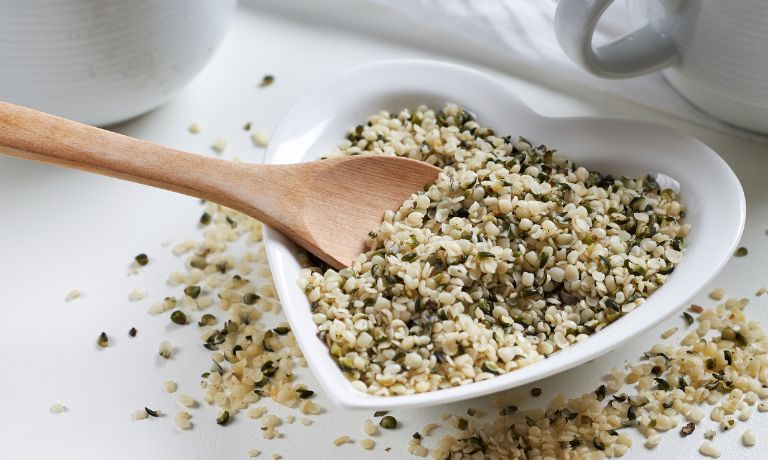
Substitutes For Hemp Seeds
If you’re looking for a substitute for hemp seeds in recipes or simply don’t have access to them, there are plenty of alternatives.
Linseeds
Linseeds, or flaxseed, are incredibly versatile seeds with many health benefits.
They contain dietary fiber, omega-3 fatty acids, antioxidants, and manganese.
[display-posts id=”2619″ image_size=”thumbnail” posts_per_page=”1″]
Linseeds can substitute for hemp seeds in many recipes, such as smoothies, oatmeal bowls, salads and more.
They can be added to baked goods, smoothies, and yogurts for a nutty flavor.
They are also a great source of plant-based protein and can help to provide a nutritious boost to any meal.
Additionally, linseeds contain lignans which have been associated with the prevention of certain types of cancer.
Linseeds are a great option for those looking to increase the nutritional value of their meals and can be used as a healthy alternative to hemp seeds.
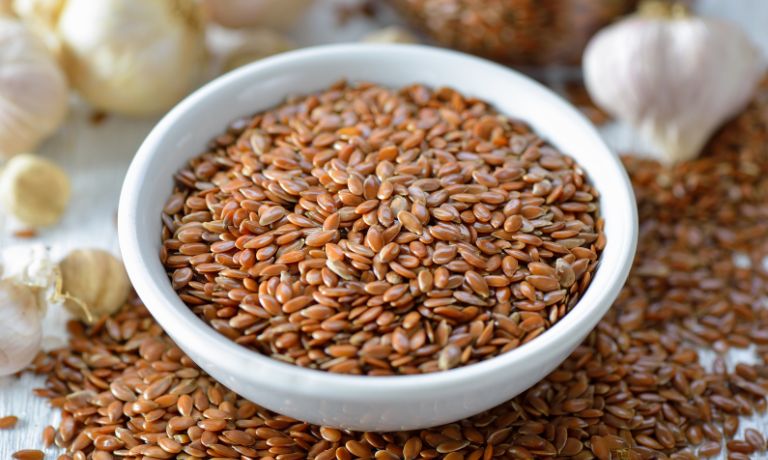
Pumpkin Seeds
Pumpkin seeds are the edible seeds of pumpkins, and they can be a great substitute for hemp seeds in cooking.
They are small, light green, oval-shaped kernels with a thin outer shell.
The seeds are packed with nutrition and contain essential fatty acids, making them a good alternative to hemp seeds.
Additionally, pumpkin seed oil is a good source of omega-3 fatty acids, which are important for maintaining heart health.
Pumpkin seeds are also high in protein and fiber, making them an excellent addition to any diet.
This makes them an ideal choice for healthy cooking, baking, and adding a nutty flavor to salads and other dishes.
Pumpkin seeds also make great snacks, providing a crunchy bite that can be enjoyed alone or in trail mixes.

Sesame Seeds
Sesame seeds are small, oval-shaped seeds with a nutty taste and a slightly sweet flavor.
They come in many colors, including white, brown, black, yellow, and ivory.
[display-posts id=”2452″ image_size=”thumbnail” posts_per_page=”1″]
Sesame seeds are high in protein and fiber and rich in minerals such as calcium, magnesium, iron and zinc.
They also contain essential fatty acids and are a good source of antioxidants.
These seeds have a high oil content, which makes them great for baking and roasting.
They also provide a nutty-tasting crunch when sprinkled on salads or added to grain dishes.
Additionally, due to their high content of minerals, sesame seeds are a great addition for vegetarians who may be unable to obtain adequate nutrition from other sources.
Furthermore, the oil in sesame seeds is known to help lower bad cholesterol levels and protect against heart disease.
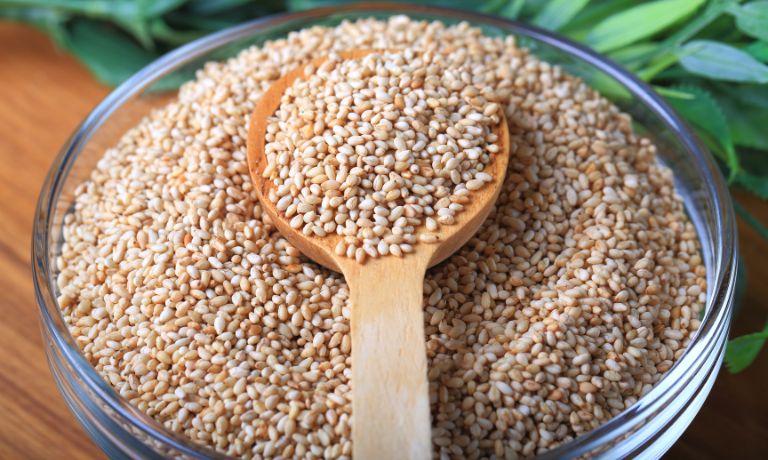
Chia Seeds
Chia seeds are small, nutrient-dense seeds from the Salvia hispanica plant.
They are an excellent source of essential fatty acids, fiber, protein, vitamins and minerals.
Chia seeds are rich in omega-3 fatty acids and provide a nutty flavor to dishes.
They are often used in smoothies, salads, and baked goods.
Chia seeds can be soaked and added to soups or stews for additional texture and nutrition.
In addition to being a tasty alternative to hemp seeds, chia is also known for its numerous health benefits, including weight loss, improved digestion, and reduced inflammation.
Additionally, chia seeds can help regulate blood sugar levels, reduce cholesterol, and improve heart health.
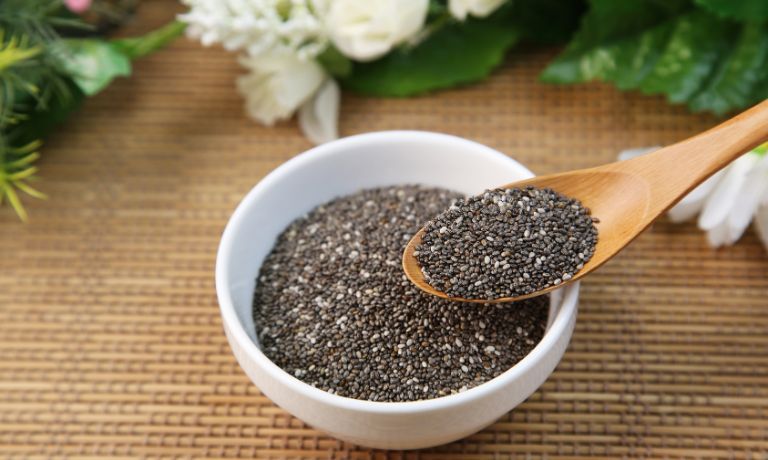
Sunflower Seeds
Sunflower seeds are small, edible seeds that come from the sunflower plant.
They are a popular snack and can be used as an ingredient in many recipes.
[display-posts id=”2442″ image_size=”thumbnail” posts_per_page=”1″]
Sunflower seeds have been found to contain high levels of antioxidants, Vitamin E, magnesium, selenium, zinc, and phosphorus.
These nutrients make them a great source of nutrition for those looking to stay healthy.
Sunflower seeds have similar nutritional profiles and can be added to recipes in place of hemp seeds.
Sunflower seeds contain more fiber than hemp, which benefits heart health and digestion.
The taste of sunflower seed is less bitter than hemp seeds, making it a palatable option in many recipes.
They can be used as an alternative topping for salads, smoothies, or yogurt bowls and are great for baking bread and muffins.
Sunflower seeds also make a great addition to trail mix or energy bars.

Pine Nuts
Pine nuts, also known as pignolia or pinon nuts, are the edible seeds of certain species of pine trees.
They have a delicate nutty flavor and are used in many dishes in the Mediterranean and other parts of the world.
Pine nuts can be eaten raw, toasted, added to salads, pesto, and pasta dishes and used in baking.
They are packed with protein, healthy fats, and various vitamins and minerals, making them an excellent addition to any diet.
Pine nuts also offer some unique benefits, such as iron and zinc, that may not be found in other nuts.
Additionally, they are a good source of vitamin E which can aid in absorbing other vitamins and minerals.
Pine nuts may be more expensive than hemp seeds.
However, their smaller size and delicacy make them attractive for those seeking a unique flavor or texture.
They can also be used as a topping or garnish on dishes for a little extra flavor and crunch.
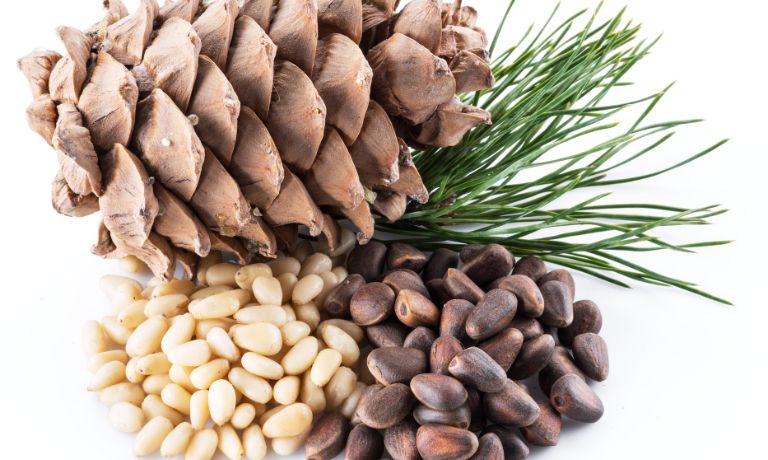
FAQs
Can You Substitute Chia Seeds For Hemp Seeds?
Yes, chia seeds and hemp seeds are often used interchangeably in recipes.
However, they have very different nutritional profiles.
Chia seeds are high in fiber and omega-3 fatty acids, while hemp seeds are higher in protein and minerals such as magnesium, iron, and zinc.
[display-posts id=”2263″ image_size=”thumbnail” posts_per_page=”1″]
Can You Use Sunflower Seeds Instead Of Hemp Seeds?
Yes, sunflower seeds can be used as an alternative to hemp seeds.
Sunflower seeds are a good source of vitamins and minerals and provide the same essential fatty acids found in hemp seeds.
However, because sunflower seeds contain less protein than hemp seeds, they may not be the best choice for those looking to increase their dietary protein intake.
Are Hemp Seeds Similar To Flaxseed?
Hemp seeds and flaxseeds have different nutritional profiles.
Hemp seeds are considered a complete protein source, containing all essential amino acids.
They also have healthy fats, vitamins, minerals, and fiber.
Flaxseeds contain higher omega-3 fatty acids than hemp seeds but lower amounts of other essential fatty acids.
Conclusion
Hemp seeds are an excellent source of nutrition, but they can be expensive and hard to find.
Luckily, there are many options to substitute hemp seeds that offer similar nutritional benefits at more accessible prices.
Chia seeds, sunflower seeds, and pine nuts all make great substitutes for hemp in various recipes.
So if you’re looking for a nutritious alternative to hemp seeds, try one of these options today!

